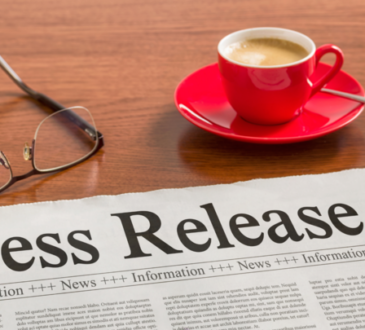
Gov. Mike Braun and an Indiana House committee approved changes to Senate Bill 1, which will need to pass through the House one more time before it can head to the governor’s desk. Photo from Indiana Capital Chronicle.
Whitney Downard
Indiana Capital Chronicle
INDIANAPOLIS — After days of silence, Gov. Mike Braun gave a thumbs up on a significant property tax amendment minutes before Republican leaders brought it to the House floor.
The measure passed on a 70-27 vote along party lines.
Braun made property taxes a cornerstone of his 2024 campaign, and had been conspicuously quiet after House leaders unveiled their plan Friday, April 4.
“I am grateful for the leadership of (House) Speaker Todd Huston and (Senate) President Pro Tem Rod Bray and for the ways they have partnered with us to deliver this meaningful tax relief to Hoosiers,” Braun said in a statement shared to X. “I encourage House members to support this amendment and urge the Senate to then take action quickly to get it to my desk for signature.”
The new version of Senate Bill 1 will increase a credit applied to all homeowner bills to 10% or a maximum of $300, cumulatively saving homeowners $1.4 billion over the next three years. An earlier version had a $200 cap and saved homeowners $1.1 billion over three years. Additionally, the amended property tax bill softens its business personal property tax cuts and further drops local income tax limits.
“This amendment makes a good bill even better and provides even more relief to homeowners,” said Lizton Republican Rep. Jeff Thompson, who authored the amendment.
Thompson, who also sponsored the underlying Senate motion, said that two-thirds of homeowners will see reduced bills in 2026 when compared to 2025.
But Democrats again urged caution when voting on the large bill without knowing the full fiscal impact. The Legislative Services Agency doesn’t release fiscal notes on amendments until they are adopted.
“I just can’t vote on something that has so many uncertainties,” said Rep. Greg Porter, D-Indianapolis.
Democratic Pushback
A handful of Democrats spoke against the amended bill, many of whom mentioned the changes to the business personal property tax as a major concern. Currently, small businesses with less than $80,000 in such property — which can include equipment, billboards and more — are exempt.
Before Wednesday, April 9, Senate Bill 1 would have halted the charge on purchases after this year, meaning the revenue to municipalities would gradually fall.

Rep. Mike Andrade, D-Munster, opposes an amended property tax bill on April 9. Photo by Whitney Downard, Indiana Capital Chronicle.
A 2024 study from the Indiana Chamber found that exempting the tax on new business personal property would reduce revenue by $1.2 billion for the state while eliminating the depreciation floor would shave away another $35 million.
In the amended property tax bill introduced that Wednesday, that $80,000 benchmark increases to $1 million next year and $2 million the year after.
“The government officials in our cities and towns (who) are going to be affected have not been in this conversation. There’s still concerns with what we have, even though this amendment does make a little bit better than what we had in committee,” said Rep. Mike Andrade, D-Munster. “… a lot of elected officials are concerned that they’re going to not be able to have this tool.”
House Speaker Todd Huston made a rare appeal from the floor, urging his colleagues to advance the motion to amend.
“This is historic taxpayer relief. Historic,” said the Fishers Republican. “… This is a complex system. We are making it a better, more transparent system for all — whether you’re a homeowner, a business or a farm. But we are, most of all, making it great for Hoosier families.”
After accepting Thompson’s edit, Republicans batted away over a dozen Democratic attempts to amend the bill, including ones that would grant more relief to renters, a first-time home buyer’s credit and one restricting the personal property tax language to only American corporations.
“The money is tight,” Thompson repeatedly told Democrats, referencing the state’s slim revenue growth predictions for the next two years.
In a statement, House Minority Leader Phil GiaQuinta called Senate Bill 1 “a tax hike in disguise.”
“Let’s be real: Senate Bill 1 is a tax hike in disguise. Paying up to 2.9% in income taxes to your city and county on top of state and federal taxes is much more than the $300 max in ‘credit’ you could receive off your property tax bill in 2026. Businesses still get a break, but working Hoosiers get crumbs. This is a bad deal for working Hoosier families, which is why House Democrats voted no on this plan.”
The bill must pass through the House one more time before the Senate takes action. That chamber can opt to accept the amended property tax bill or dissent, which would go against Braun’s wishes for a quick resolution.
Dissenting would send the bill back to a conference committee, where lawmakers would hammer out a final negotiation that both chambers could agree upon.



